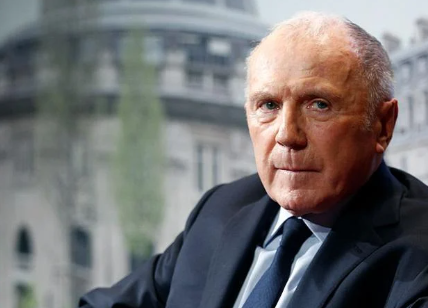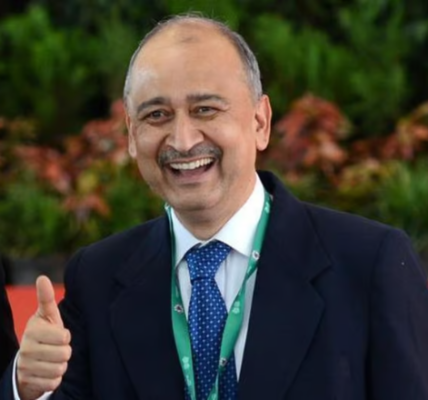
Early Life and Education
Bernard Jean Étienne Arnault was born on March 5, 1949, in Roubaix, France, into a family that nurtured ambition and creativity. His mother, Marie-Josèphe Savinel, a talented pianist, instilled a love for the arts in her children, while his father, Jean Léon Arnault, an École Centrale Paris graduate, owned a successful civil engineering company, Ferret-Savinel. Raised in a devoutly Catholic household, Arnault’s upbringing was shaped by traditional values and a rigorous education.
From a young age, Arnault exhibited a strong inclination toward academics and the arts, taking classical piano lessons and excelling in his studies. He attended the Lycée Maxence Van Der Meersch in Roubaix and the prestigious Lycée Faidherbe in Lille, where he prepared for the competitive entrance exams to France’s elite grandes écoles. In 1971, he graduated from the École Polytechnique, one of France’s most esteemed engineering schools, laying the groundwork for his future business endeavors.
Career Beginnings
Upon graduation, Arnault joined his father’s company, Ferret-Savinel, where he began to shift its focus from industrial construction to real estate. Under his leadership, the company was restructured and renamed Ferinel, eventually becoming a successful player in the real estate sector. This experience provided Arnault with valuable insights into business operations, financial management, and the art of strategic investments.
Entry into Luxury Goods
Arnault’s significant foray into the luxury goods market began in 1984 when he strategically acquired the struggling Boussac Saint-Frères, a textile and retail conglomerate that included the iconic fashion house, Christian Dior. His acquisition was marked by aggressive restructuring tactics; he laid off 9,000 employees within two years, earning the nickname “The Terminator.” Despite the drastic measures, his vision revitalized the Dior brand and laid the groundwork for his future empire.
In 1987, Arnault co-founded LVMH (Louis Vuitton Moët Hennessy) by merging Louis Vuitton with Moët Hennessy, setting the stage for the luxury conglomerate that would come to dominate the global market. His foresight in acquiring and consolidating luxury brands established LVMH as a powerhouse, incorporating renowned names such as Céline, Loewe, and Marc Jacobs.
LVMH’s Expansion and Dominance
As the chairman and CEO of LVMH, Arnault spearheaded an ambitious growth strategy that propelled the company to new heights. He orchestrated numerous acquisitions, including the purchase of Berluti, Kenzo, and Guerlain, among others. His ability to spot undervalued brands and integrate them into the LVMH portfolio proved instrumental in the conglomerate’s transformation into the largest luxury goods company in the world.
Arnault’s management style emphasizes decentralization, allowing brands like Louis Vuitton and Dior to retain their unique identities while benefiting from LVMH’s extensive resources. Under his leadership, the company has achieved remarkable financial success, reporting revenues of €86.2 billion (approximately $93 billion) in 2023.
Innovations and Philanthropy
Beyond his business acumen, Arnault is a prominent art collector and philanthropist. He has invested significantly in the arts, supporting cultural institutions and initiatives, including the Louis Vuitton Foundation, which promotes contemporary art and architecture. His commitment to philanthropy extends to various causes, particularly those related to education and the arts.
Arnault’s influence in the art world is notable, as he has collaborated with leading artists to create unique pieces that reflect LVMH’s brand ethos. His vision for the Louis Vuitton Foundation, designed by architect Frank Gehry, has transformed the landscape of contemporary art in Paris, showcasing both emerging and established artists.
Personal Life
Arnault’s personal life reflects a blend of family values and business ambitions. He first married Anne Dewavrin in 1973, and they had two children, Delphine and Antoine, before separating in 1990. In 1991, he married Canadian pianist Hélène Mercier, with whom he has three sons: Alexandre, Frédéric, and Jean. All five of his children hold official roles within LVMH, underscoring Arnault’s intent to involve his family in the family business.
Wealth and Financial Acumen
Throughout his career, Arnault has consistently been ranked among the wealthiest individuals globally. In April 2023, his net worth peaked at approximately $240.7 billion, affirming his status as a titan of the luxury industry. His wealth is largely derived from his holdings in LVMH, where he controls approximately 48% of the company. He has also invested in various ventures, including technology and real estate, showcasing his versatile investment strategy.
Arnault’s financial maneuvers, such as his brief attempt to gain Belgian citizenship in 2013, sparked discussions about tax regulations and wealth management. He later retracted his citizenship application, emphasizing his commitment to France and its economic landscape.
Legacy and Influence
Bernard Arnault’s journey from a modest upbringing to the helm of the world’s largest luxury goods conglomerate is a testament to his vision, resilience, and strategic prowess. His influence on the luxury market is profound, with LVMH setting trends and standards that shape consumer perceptions of luxury. As he continues to oversee the expansive LVMH empire, Arnault’s legacy will undoubtedly endure, leaving an indelible mark on the business world and the luxury industry for generations to come.
Conclusion
Bernard Arnault’s journey from a small business in northern France to the helm of LVMH illustrates his remarkable ability to blend vision, strategy, and resilience. His impact on the luxury industry continues to be felt worldwide, as he navigates both challenges and opportunities in an ever-evolving marketplace. Through his innovative leadership and commitment to excellence, Arnault has not only redefined luxury but also set a standard for future entrepreneurs in the global business landscape.





